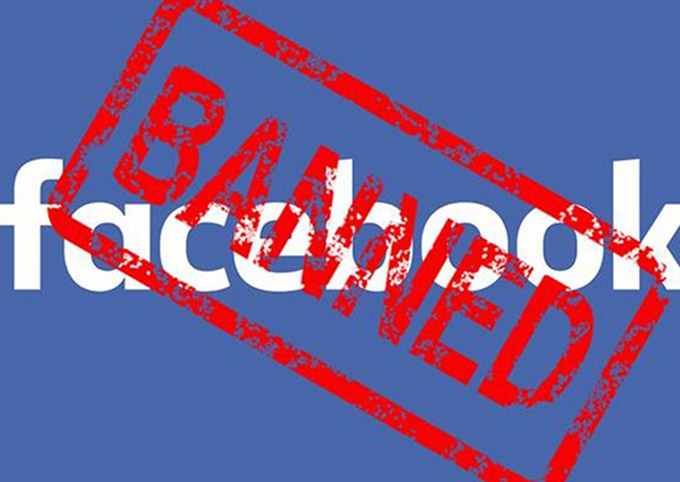
By Robert Iroga in Honiara
Struggling businesses have expressed concerns and international media rights groups have condemned the Solomon Islands government’s proposal to temporarily ban Facebook.
The Solomon Islands Chamber of Commerce and Industry (SICCI), as the peak body representing private sector in Solomon Islands, is particularly concerned with the negative impacts this decision will have on the country’s micro businesses, entrepreneurs and those in the informal sector dependent on social media for marketing and advertising.
“It is the government’s prerogative to make such a decision, but as a chamber we believe that there are other pressing issues that require our collective focus,” SICCI board chair Jay Bartlett said.
- READ MORE: Solomons to ban Facebook but claims ‘media freedom to remain’
- Solomon Islands Facebook ban under attack
Members of the business community shared their concerns with SICCI today while others opposed the decision to temporarily ban Facebook.
Paula Brake, managing director of Tower Insurance Pacific said Facebook was the most widely used social media platform in the Pacific Islands and was an important communication tool relied upon by individuals, businesses and communities.
“Tower uses Facebook to engage with customers and their communities regarding a variety of matters, most importantly those relating to the preparation for and response to severe weather events.
“The most engagement Tower has on Facebook is relating to claims processing following major events. As such, Tower strongly opposes any proposal to ban Facebook usage in the Solomon Islands,” Brake said.
Important marketing strategy
Seventy percent of SICCI’s membership was made up of small medium enterprises (SMEs), one of them SAMEDIA Limited and director Gloria Hong said that for small businesses interacting with consumers on social media was an important marketing strategy.
“Using social media helps us to build brand awareness, increase our customer base, and connect with customers,” she said.
“In my view, banning Facebook is a threat to businesses, especially the small businesses [that] cannot afford to run advertisements on radio, newspapers and on TV,” Hong said.
Tongs Corporation have invested a lot of time and effort to launch and grow their Facebook presence as a mode of communication with their customers.
Sales and marketing manager John Wopereis said Facebook had been an effective tool in building relationships with the wider community to grow product knowledge and showcase the inspiring stories of builders, contractors and homeowners.
“In terms of our planning for 2021 onwards, it’s important for us to be clear on what to expect as we have outlined facebook as a key marketing tool and have content lined up ready to go. We need to know what’s happening so we can be clear on where to invest our time and effort,” Wopereis said.
As with the covid-19 global pandemic, the tourism sector would be most affected by the Facebook ban.
Heavily reliant on Facebook
Sunset Lodge based on the island of Savo relies heavily on social media to attract customers.
Owner Bernard Kemakeza has taken every opportunity presented by the government and SICCI to improve his business’ online presence and sees this move as a setback.
“Coming into 2020 we did not anticipate the global pandemic impacting on the tourism industry the way that we’re experiencing at the moment,” he said.
“For small operators such as ourselves, we are struggling to pay our workers, to pay tax to government, help our nearby communities and we look forward to when things get back to normal.”
Anthony Fargas, managing director of Coral Sea Resort and Casino, said advertising in the traditional media was not viable in a depressed economic landscape on a regular basis.
“There is a high uptake of Facebook with Solomon Islanders and freedom of expression and information should be encouraged in any democracy or competitive landscape.”
Unjustified media freedom attack
Responding to the Facebook ban plan, the Auckland-based Pacific Media Centre condemned the move, saying that it was an unjustified attack on media freedom and freedom of information.
“This is a cynical assault on fundamental human rights launched by ministers with thin skins and bruised egos and it is naive to claim that while Facebook would be banned media freedom would be retained,” said centre director Professor David Robie.
“Many small Pacific media, including in Solomon Islands, have integrated social media and news publishing platforms and strategies. An arbitrary ban on Facebook – even short-term – would be damaging to both the public right to know and the media business models putting at risk their viability.”
Amnesty International’s Pacific researcher Kate Schuetze said: “To ban a social media site simply because people are posting comments that the authorities don’t like is a blatant and brazen attack on human rights.
“Protecting the sensitivities of government officials is not a justifiable reason to limit freedom of expression, which is also a right under the Constitution of the Solomon Islands.”
Robert Iroga is editor of Solomon Business Magazine (SBM). This article is published with permission.













































